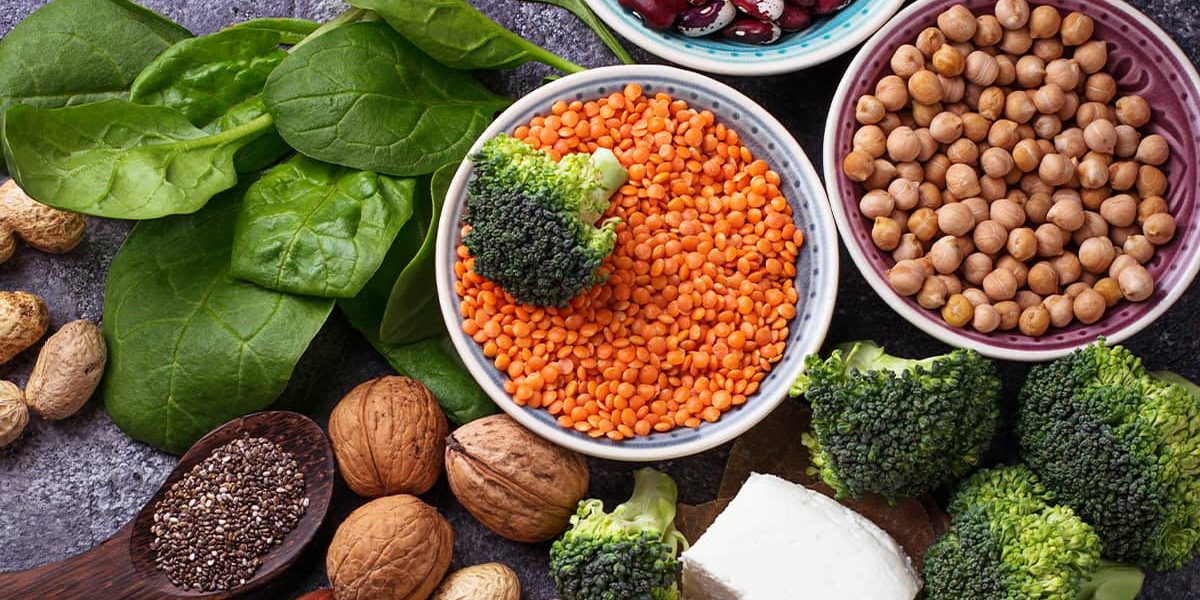Proteins are an important pillar of our diet, regardless of having an active lifestyle or not. Although being constantly surrounded by this information, we may often ask ourselves why we need protein and which foods can provide it. This article aims to help those who might still ask the above-mentioned questions concerning protein.
Which foods can ensure the necessary amount of protein for our body?
Although animal proteins seem to be the most popular sources of protein, with people ensuring their daily intake from meat, fish, eggs, and dairy, we should give plant proteins the same amount of attention, as several plant foods are much richer in protein than we would think. Not only do these foods provide the necessary amount of protein for those who, for one reason or another, can’t or won’t eat meat, but they also represent an excellent choice for those who do eat meat and just wish to diversify their diet or try new tastes in the kitchen.
Consuming the appropriate amount of protein is especially important for vegetarians and vegans, but they must also make sure to consume various good quality foods in order to provide their body with all the nutrients it would otherwise get from meat or other sources of animal protein.
The best plant protein sources
We have gathered some foods that are excellent sources of plant protein and contain valuable nutrients for both vegetarians and people that consume meat:
Legumes
We often put legumes such as chickpeas, lentils, beans, or green peas on the table as alternative sources of protein. We can consume them steamed, cooked, or even made into vegetarian burger patties, which, with the right seasoning, can even resemble a classic meat patty.
Since more and more people switch to a vegetarian lifestyle, so many meatless recipes are born that reinvent delicious meals, therefore they are worth including in our diet from time to time.
Mushrooms
Thanks to their distinct taste and texture, mushrooms are a popular alternative for meat. Button mushrooms, oyster mushrooms or even portobellos can be made into delicious main courses, while also being rich in protein, fiber and vitamins, which makes them an important element of a balanced diet. Smaller mushrooms can be used to make savory stews or pasta dishes, while mushrooms with larger caps can be grilled whole and eaten as a hamburger patty.
Soy products
Soy has been known for a while and commonly associated with a meatless lifestyle. Soy products are often consumed due to their high protein content and versatility by vegetarians, vegans, and meat eaters, as well. They are a great choice for those with lactose intolerance, too, since milk, yogurts, and cooking cream made of soy are great lactose-free alternatives. There’s also tofu and tempeh, which can add extra texture to different main courses or soups instead of meat. One of the recent trends is represented by the protein-packed edamames, which are green, young soy beans that are still in the pod. We consume only the soy beans, without the pod, either steamed, cooked, or as ingredients in different salads and other dishes.
Nuts
Nuts such as peanuts, almonds, cashews, walnuts, or pistachios are also rich in protein, while also containing significant amounts of healthy fats, vitamins, minerals, fiber, and other valuable nutrients. We can consume them as snacks, in salads, or include them in our diet in the form of nut butters, such as peanut, almond, or cashew butter.
Seeds
Different seeds such as hemp seeds, chia seeds or flaxseeds can also represent a great source of protein. We can put them in salads, add them to our breakfast (chia pudding) or even make vegan eggs out of flaxseeds.
Cereals and pseudocereals
Perhaps the first thought that comes to one’s mind regarding cereals is not their protein content, nonetheless, certain cereals and pseudocereals such as oats, amaranth, buckwheat or quinoa do contain significant amounts of protein. These can be added to breakfasts, salads, or even eaten as side dishes.
Nutritional yeast
Nutritional yeast is actually deactivated yeast, which is high in protein, vitamins, and minerals, while also having a pleasant cheesy flavor, due to which it is often used as vegan cheese in salads or main courses.
We hope that our article has helped you find answers to some of the questions you might have had regarding plant proteins and that your new-found knowledge will make you experiment with some alternative sources of protein from time to time.






